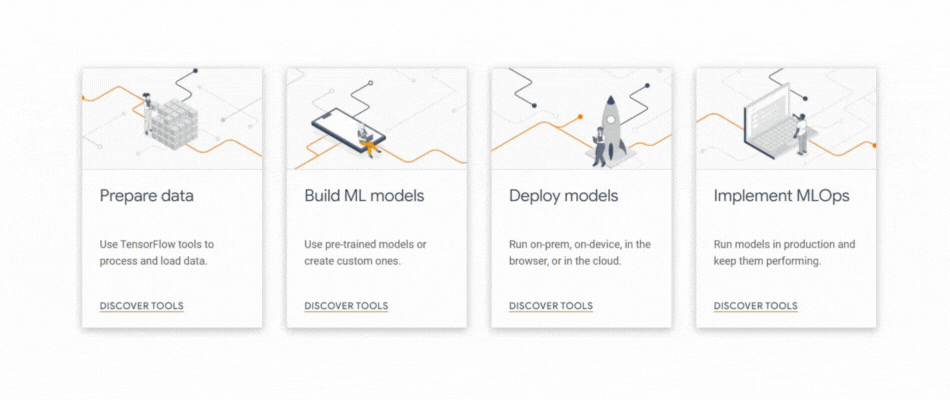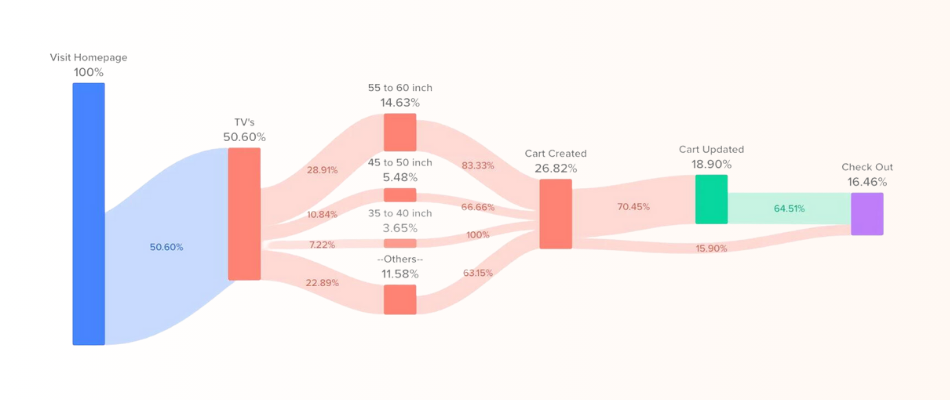Top 6 Game Changing B2B Marketing Analytics Trends for 2024
The B2B marketing is constantly changing, making it crucial to stay updated. Every B2B marketer has to be aware of a number of Captivating trends and advancements in marketing analytics as we look ahead to 2024. Let’s explore these trends in a simple and engaging way.
1. Simplified Analytics with GA4
2. Machine Learning Platforms and Tools Are More Accessible
3. Intersectional Data Provides a Deeper Level of Targeting
4. Understanding Customer Experience and Journey
5. AI Continues to Evolve
6. First-Party Data Helps Draw Actionable Insights
01. Simplified Analytics with GA4

Google Analytics 4 (GA4) has made analytics more user-friendly than ever before. It uses generative AI to quickly identify the most important key audience segments and characteristics, such as demographics and user preferences. these elements are crucial for manual segmentation, It’s much easier for all kinds of businesses to understand their users and their behaviors and simply tailor their strategies accordingly.
Earlier, you need to understand the data science and specific terminology in order to uncover answers in your data. But using GA4, you can quickly obtain insights by asking questions in plain language. I would say It’s a game-changer that simplifies B2B marketing analytics, empowering users to make better decisions without diving deep into data science. This will be more beneficial for all the B2B Marketers.
2. Accessibility of Machine Learning Tools

Machine learning empowers computers or systems to learn and make predictions or decisions without being Specifically programmed. It involves developing models and algorithms that adapt and improve over time as they are exposed to more data.
Machine learning platforms and tools can be used by B2B marketers to create marketing material, create visuals, and more. And the best news is that you can use a variety of machine learning packages today for your own B2B marketing analytics projects.
Let me give you an example, TensorFlow, an open-source machine learning framework by Google, allows you to build and train machine learning models, even for predicting future trends based on your data.
Think about building models that predict how keywords will rank or estimate conversions based on website traffic. These tools offer exciting opportunities for “what-if” scenarios.
3. Intersectional Data Provides a Deeper Level of Targeting

Intersectional data considers various dimensions of identity, It involves analyzing data that captures the various dimensions of identity, such as:
- Race
- Gender
- Age
- Socioeconomic status
- Ethnicity
By examining these identities B2B marketers can create targeted and inclusive marketing strategies.
Rather than making broad assumptions, intersectional data allows marketers to grasp how these overlapping factors impact consumer behavior. This results in messaging and products that cater to a wide range of audiences.
4. Understanding Customer Experience and Journey

It is crucial to have an understanding of the customer journey in order to carry out marketing strategies. Nowadays B2B marketers are placing emphasis on mapping. Analyzing the entire customer experience from start to finish. This involves identifying touchpoints, channels and interactions that occur from the stage of awareness all the way through to post-purchase.
By utilizing GA4s range of data and models you can gain insights into areas where your customer journeys might require adjustments. For example pinpointing the moment, for email conversions or uncovering overlooked content can result in making informed decisions that ultimately boost sales.
5. The Growing Influence of AI Technologies

AI’s role in B2B marketing will continue to grow. It’s not just for generating content anymore; now, it also powers interface-less technology. This allows marketers to directly interact with AI powered applications enabling them to receive data driven answers without requiring coding knowledge.
It is essential to understand that we’re not talking about modeling like ChatGPT. Instead we’re emphasizing the rise of no interface technology, which allows marketers to directly interact with AI powered applications without needing coding skills.
This implies that B2B marketers can efficiently acquire data supported solutions to their queries providing them with insights even if they don’t possess expertise in data science. AI is the foundation of all these advancements and makes for an exciting future.
6. The Power of First-Party Data

First party data collected directly from customers or users holds value. With GA4 you can leverage this data to create targeted audiences based on attributes and behaviors. By adopting this insight driven approach you can shape content creation optimize campaigns and align marketing strategies, with the needs of your audience.
In GA4, the data you have access, to consists of real world information that can be traced back to individuals (PII) or automatically collected website traffic through cookies. Your company is responsible for owning and managing this data ensuring that privacy regulations and data security are upheld.
With GA4 you can utilize this first party data to create targeted audiences based on parameters and segments you define. This allows B2B marketers and website professionals to gain insights about their audiences characteristics, behaviors and interactions. By leveraging this first party data it transforms the way we approach analytics as it enables us to truly understand our audiences needs and directly take actions.
For instance, by utilizing your first party data you can gain an understanding of your customers requirements and challenges. These insights can then be used to inform content creation optimize campaigns and develop marketing strategies that align with the expectations and goals of your audience.
Wrap Up
In summary, B2B marketing analytics is at the edge of innovation. GA4, machine learning, intersectional data, customer journey modeling, no-interface AI, and first-party data are the tools that will shape the future of B2B marketing. By embracing these trends, your organization can thrive in the dynamic landscape of 2024.
Are you ready to leverage these trends for your B2B marketing success? Contact us to explore how these strategies can be customized to your unique needs. The future of B2B marketing awaits, and we’re here to guide you toward success.

